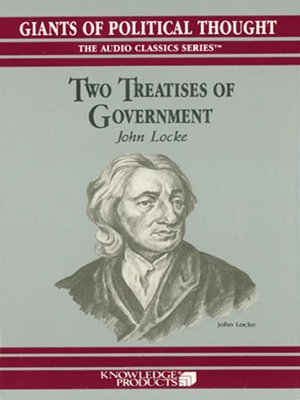|
Two Treatises of Government
by John Locke Published in 1689 548 pages Thibault’s Score: 3/5 I really expected to agree with John Locke, and was surprised that I didn’t. During my many years as a libertarian, I heard a lot of good things about John Locke, although I never actually read him. I was very disappointed. In Locke’s first treatise, he argues against absolute monarchy and provides counterarguments to the divine right of monarchs. This treatise is interesting for historical reasons, and gave me a lot of unprecedented insight into the minds of people in the 17th century, but otherwise doesn’t apply to modern life. In the second treatise, Locke argues for human rights. The second treatise contains a lot of the egalitarian rot which has infected modern day Europe. Locke opens by describing men in the state of nature. He argues that all men are born equal, because in nature, there is equality. This premise is absurd - Darwinian evolution of apes into men would have been impossible had all the apes been equal. Our biological differences condemn us to inequality. This absurd premise itself stems from the egalitarian aspects of Christianity. Locke then proceeds to argue that things are just or unjust, fair or unfair, equal or unequal without defining those terms. I was disappointed because I expected John Locke to be a much better writer than he turned out to be.
0 Comments
Leave a Reply. |
Thibault SerletMost of my articles are book reviews, but I also write about many other topics. Archives
December 2023
Categories |

 RSS Feed
RSS Feed